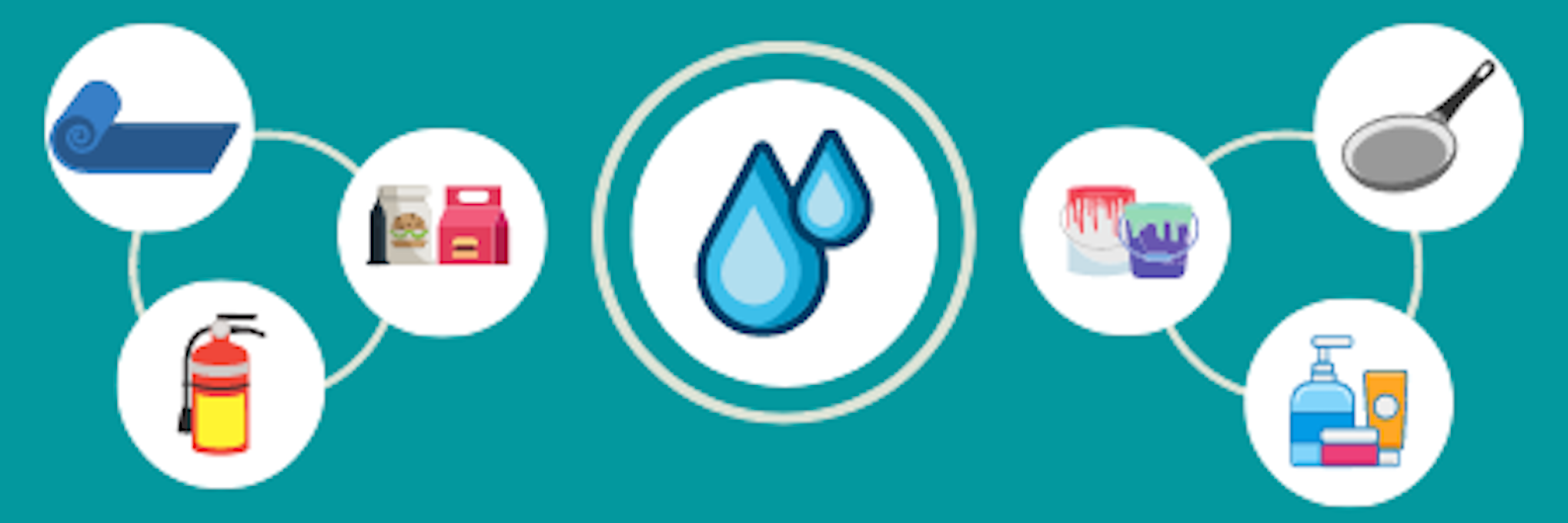Research into polyfluoroalkyl and perfluoroalkyl substances (PFAS) is always evolving, which can leave community leaders unsure at how to adapt as more information is found.
For anyone familiar with ongoing regulations regarding water quality, these past 2 weeks has been full of eventful news at the national level. Concern about polyfluoroalkyl and perfluoroalkyl substances (PFAS) and similar ‘forever chemicals’ contaminating water, have led municipal water regulators to examine their own systems to protect public health. However, new health advisories from the EPA released June 15’th, 2022 have made the future of what communities can expect of the regulatory standard murky. Research into PFAS is always evolving, which can leave community leaders unsure at how to adapt as more information is found.
The use of PFAS has grown across industries since the 1940’s and they can be found in just about every corner of the country. The non-stick nature of the PFAS made them ideal for multiple industries, from fire-fighting foams, to clothing, and even non-stick pans. But, because these chemicals are water soluble, and do not break down easily, they have a tendency to build up in water systems, making them a concern for drinking water. Given how widespread they are, back in 2016 the EPA set PFAS advisories at 70 parts per trillion (ppt). While recent research rounds out our understanding of PFAS and similar chemicals, sudden changes in regulation may throw communities and members of the public for a loop, which is why these developments require a nuanced and experienced examination.

The EPA’s June 15’th 2022 advisories were summarized by MassDEP as follows,
-
“Interim updated Health Advisory for PFOA = 0.004 nanograms per liter (ng/L), or parts per trillion (ppt)
-
Interim updated Health Advisory for PFOS = 0.02 ng/L
-
Final Health Advisory for GenX chemicals = 10 ng/L
-
Final Health Advisory for PFBS = 2,000 ng/L”
These health advisories have a much lower acceptable threshold for PFAS levels, and also include guidelines for GenX and PFBS which have been used as replacements for PFOA and PFOS.
What makes these changes notable for Massachusetts communities in particular, is that they go even further than the recent 2020 MassDEP standard of 20 parts per trillion. CSS for a while now has been assisting several Massachusetts municipalities with their management of the 2020 state PFAS regulation, allowing us a unique insight into these developments.
The EPA’s June 15’th 2022 health advisories are not at the stage where they can be enforced, within the released statement the EPA has said that it will be proposing a PFAS National Drinking Water Regulation in the fall of 2022, which may likely mirror the new health advisories. For communities in Massachusetts in particular, they may plan to stay on track with meeting the state regulations, as we all await the possibility of a new national standard. Any community struggling to manage PFAS should know that funding for water quality management can be found in several grants within the Build Back Better Infrastructure bill.

However the numbers may change, the skills needed to manage a water quality issue remain the same. When the conversation has become so large at the national level, the implications for local government cannot be overlooked. Massachusetts DEP has set some of the most stringent standards currently in place across the country, and communities who have already begun the herculean task to managing PFAS contamination have already honed the skills necessary to manage any further developments with the issue.
The key to managing the outreach for a water quality crisis relies on 3 primary skills, clear communication, persistence, and education. Members of the public may be understandably fearful of any news about the quality of their drinking water, being clear, and honest with them is the best way to manage their fears. With PFAS, educating the public is key, as it can be easy to oversimplify the issue, or on the flip side inundate them with unnecessary facts and figures. Conveying information in a way that addresses how their everyday lives may be affected is the best way to frame the educational materials given to the public.
With regards to persistence, providing multiple avenues for the public to educate themselves is key. When Capital Strategic Solutions has managed this issue for communities, we recommend not only a website with relevant facts, but also regular social media posts to inform the public of how Public Works are managing the issue each day, and a hotline where community members can call with their questions and concerns. In some cases having a hotline on hand to reassure the public is far more effective than any content created as having a person speak to you directly gives the personal attention some community members need to be informed.

Paul Scott, a Senior Project Manager at CSS noted,“The State of Massachusetts Department of Environmental Protection has taken a more stringent approach by enacting state drinking water regulations with much lower thresholds (20 ppt) of PFAS-PFOS contamination. While many other states regulators have set contamination levels higher or that mirror the EPA guidelines of 70 parts per trillion or are doing nothing but watching, the Mass DEP has taken the initiative to regulate these chemicals more immediately. There are literally thousands of these compounds, and as the EPA is now focusing on creating additional guidelines, Massachusetts community water systems can expect more regulations concerning the additional compounds found to have significant health concerns.”
The Capital Strategic Solutions Team is extremely well versed in all thing’s public works. With several former Directors of Public Works on our team, and extensive experience in PFAS outreach and education, no matter how the news may change, we have the tools and know how to assist any community struggling to manage their water quality. Our team works around the clock to deliver cost effective solutions that minimize risk to our clients. Whether it be outreach, grant writing, or project management, our skills in the municipal world can make a difference in communities big and small.
To learn more about our services, and the expertise of our team please email us at info@Capital-Strategic-Solutions.com or call us at 508-690-0046 to schedule a meeting.

